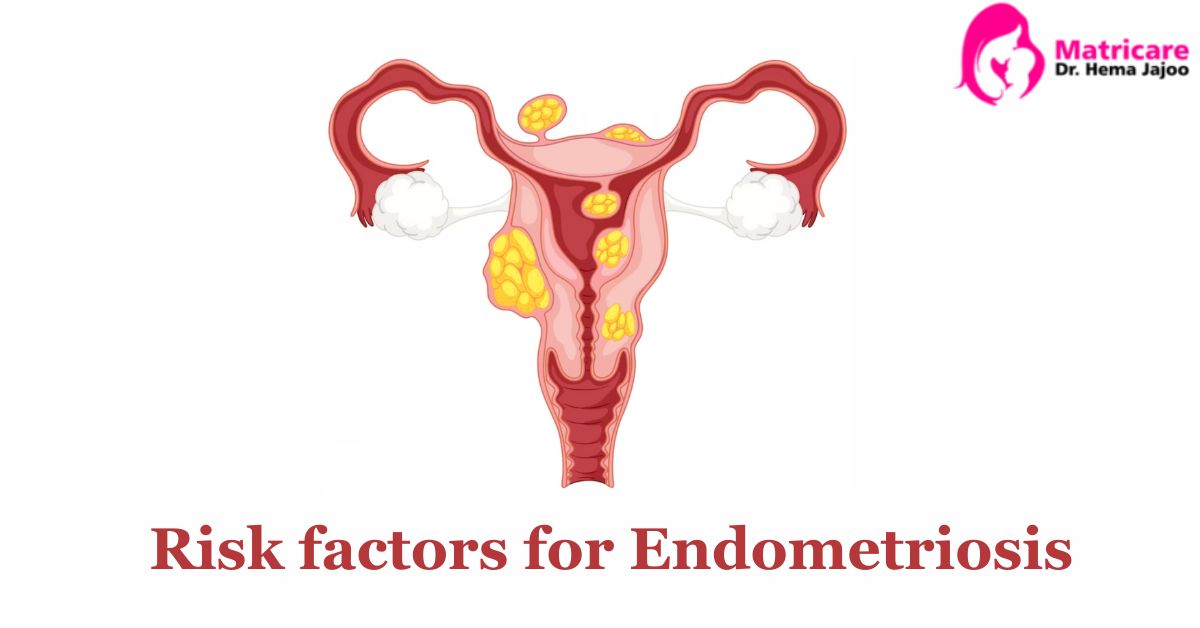Endometriosis is a condition in which the tissue that normally lines the inside of the uterus (the endometrium) grows outside the uterus. While the exact cause of endometriosis is not fully understood, there are several recognized risk factors that may contribute to its development. These risk factors include:
Family history:
Having a close relative (such as a mother, sister, or aunt) with endometriosis increases your risk of developing the condition. This suggests that genetic factors may play a role.
Retrograde menstruation:
Retrograde menstruation occurs when some of the menstrual blood containing endometrial cells flows backward through the fallopian tubes into the pelvic cavity instead of out of the body. This can cause the endometrial cells to attach to the pelvic organs and develop into endometriosis.
Hormonal factors:
Hormones, particularly estrogen, play a significant role in the development and progression of endometriosis. High levels of estrogen may promote the growth of endometrial tissue outside the uterus.
Delayed childbearing or null parity:
Women who have not given birth to a child or who have delayed childbirth until later in life have a higher risk of developing endometriosis. Pregnancy and childbirth are believed to have a protective effect against endometriosis.
Reproductive system abnormalities:
Certain structural abnormalities in the reproductive organs, such as a malformed uterus or blocked fallopian tubes, may increase the risk of endometriosis.
Immune system dysfunction:
Some researchers believe that a weakened immune system or an abnormal immune response may allow the implantation and growth of endometrial cells outside the uterus.
Environmental factors:
Exposure to certain environmental toxins, such as dioxins, may increase the risk of developing endometriosis. However, more research is needed to fully understand the impact of environmental factors.
It’s important to note that while these risk factors may increase the likelihood of developing endometriosis, the presence of one or more of these factors does not guarantee that a person will develop the condition. Additionally, some individuals may develop endometriosis without having any of these risk factors. If you suspect you may have endometriosis or are experiencing symptoms, it’s best to consult with the best lady gynecologist in Indore for an accurate diagnosis and appropriate management.

